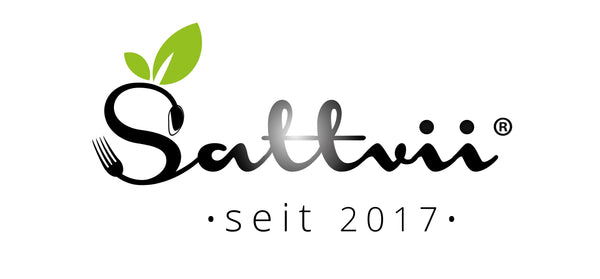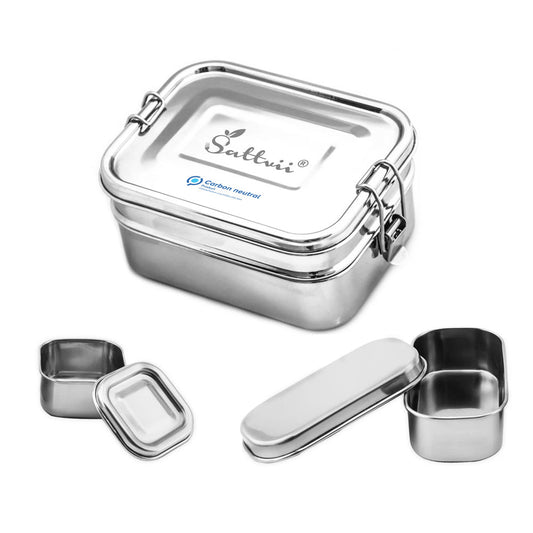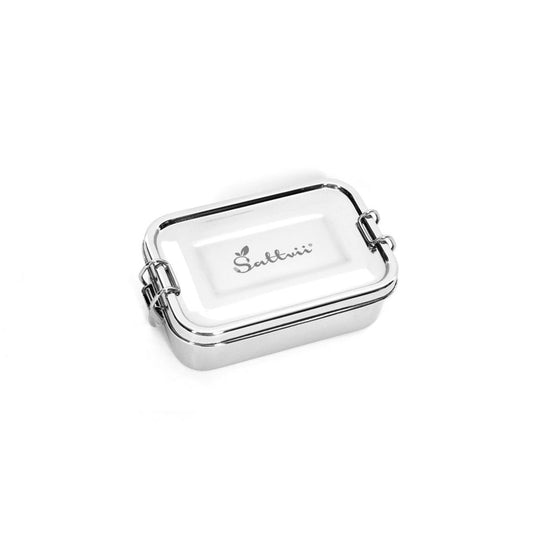
Your child needs these vitamins
shares
We all know it - the kindergarten or school comes up to you. Topic Lunch box daycare or school - what do I pack. Of course, it is also important to provide your child with sufficient nutrients.
Only which vitamins are actually important and how many are optimally needed? Which meals contain the important "growth vitamins" and what actually belongs in the lunch box?

In today's blog post we will show you what you should pay attention to when it comes to providing your child with sufficient vitamins.
First of all, it is important to know that vitamins are nutrients that play a major role in almost every function of the human body.
Fortunately, the body can also produce and store many nutrients itself. Unfortunately there are exceptions here too. That's why we need food.
For the nutrition of children it is therefore good to know that the so-called vitamin B complex plays an important role. It is crucial for a functioning metabolism and cell division.
Young people between the ages of 15 and 19, for example, have an above-average daily requirement for certain vitamins. This is then higher than that of an adult. For this purpose, the German Society for Nutrition (DGE) has compiled guideline values for various age groups.
These are:
In adolescents:
- Vitamin B1 Thiamin - 15 milligrams (boys) / 11 milligrams (girls)
- Vitamin B2 Riboflavin - 1.6 milligrams (J) / 1.2 milligrams (M)
- Vitamin B3 niacin - 17 milligrams (J) / 13 milligrams (M)
For children these vitamins are important:
- Vitamin B12 - 1.5 - 3.5 micrograms (age: 1 - 13 years)
- Vitamin D - 20 micrograms (Age: 1 to less than 15 years)
- folic acid - 300 micrograms estimated daily requirement
A few of these vitamins are usually hidden in foods that children unfortunately do not like to eat or, if you feed your child vegan, may not be on your menu. It is therefore important to go to the pediatrician regularly and have the values checked there.
In addition to the vitamins listed above, the following vitamins are important for both children and adults: vitamins A, C, E and K.
Now we have already shown you the most important limits of the vitamins.But what are these good for anyway?
Also interesting:
Vitamin B - so that your child grows big and strong
- vitamin B1 or thiamine
- metabolic control of nutrients so that the body can energy
- Support of the nervous system
- Possible muscle weakness with vitamin B1 deficiency
The following foods contain sufficient vitamin B1:
- Whole grain products, either in the form of bread, pasta or unsweetened muesli
- potatoes and legumes
- peanuts and sunflower seeds
- vitamin B2 or riboflavin
- Important for cell formation so that your child can grow!
- Provides a substance to use energy and vitamins for the body from ingested food
- Indication of deficiency: torn corners of the mouth or more often inflammation of the mucous membranes
These foods cover your vitamin B2 needs:
- Whole grain
- Mushrooms such as porcini or button mushrooms
- Emmental (whey cheese) or saithe
A little tip: with ingredients such as cheese or fish, it makes sense to choose a lunch box made of stainless steel for school or daycare, because unlike plastic, no odors are stored in the material
- vitamin B3 or niacin
- Responsible for metabolism of nutrients found in food
- Transmission of signals between cells and cell division
- Helps to produce insulin (like in the pancreas)
- If your child is poorly sleeping or is it slightly irritable this could indicate a Indicate deficiency
The following foods contain vitamin B3:

Vitamin B12 - the "problem vitamin"?
"Problem vitamin", because this vitamin is mostly found in foods that many children don't like. But what is vitamin B12 responsible for in the body?
Vitamin B12 is on the one hand for the metabolism of the proteins and within the Cells responsible. On the other hand, it helps build up the spinal cord and the nerve pathways.
It also helps to store folic acid in the red blood platelets. Typical deficiency symptoms are, for example, anemia. You can find vitamin B12, for example, in herring or salmon, camembert and fermented vegetables such as sauerkraut and algae.
This vitamin is one of the few that the body can store independently for years. The quantities here are in the microgram range.
If you feed your child vegan, it could be problematic here, because Peta
The sunshine vitamin - vitamin D
Especially in winter it is difficult for us and we get far too little of the valuable nutrient. It's all about vitamin D. The easiest vitamin to get from getting out in the sun. The body can produce it itself, but only in connection with the UV rays of the sun.
What is it good for: It mainly helps strengthen the bones together with calcium. heart and nerve cells are also supplied. You should consider a deficiency if you notice that your child quickly gets tired or feels badly concentrate can.
Also talk to the kindergarten or school to see if the teachers and supervisors notice anything. With really extreme vitamin D deficiency, it can even happen that the bones become soft and thus deform - also called rickets. Other secondary diseases of a deficiency would be, for example, diabetes or multiple sclerosis.

But don't worry, we didn't mean to scare you. In principle, it is actually sufficient for a full vitamin D level if your offspring can be outside every day.
The German Society for Nutrition says that depending on the season it is enough to spend ten to 25 minutes outside. The body absorbs enough sunbeams via hands and face for vitamin formation.
In winter you can help out with these foods, for example:
- eggs and fatty fish
It is now known that paediatricians are increasingly finding vitamin D deficits in children. Why is that? Unfortunately, children spend more and more time in front of the television and PC instead of spending their free time outside.
According to the Ärztezeitung only a third of all boys get the time they should spend outside. A quarter for girls.
Of course is good
Basically, a balanced diet is sufficient to provide your child with all the necessary vitamins. There is a great risk with ready meals, for example. If you're thinking to yourself, "Well, I'll just give my kid a glass of juice for breakfast."
Please be careful here too - paediatricians warn against so-called “A-C-E-Drinks”. According to a long-term study, these vitamin supplements affect nutrient absorption especially in girls.
This is also confirmed by Stiftung Warentest - in the test, the ingredients are usually overdosed and environmental toxins were found.

Feel free to visit our Online Shop - here you will find lunch boxes for children with partitions, so that the meals look and taste good even at school.
We hope that we were able to give you a good overview of which meals will be included in the lunch box in the future.If you have any questions, please feel free to contact us at any time here




